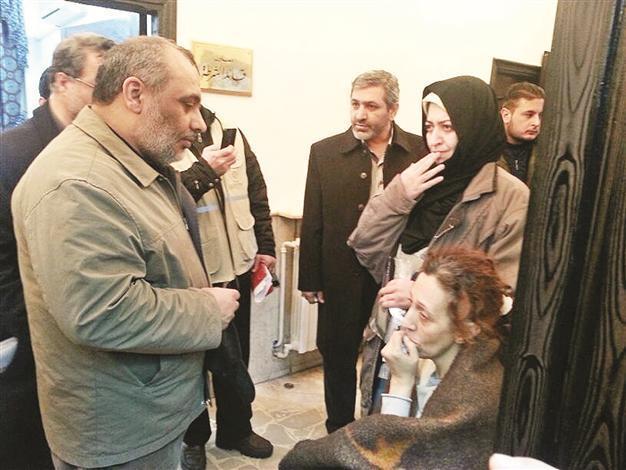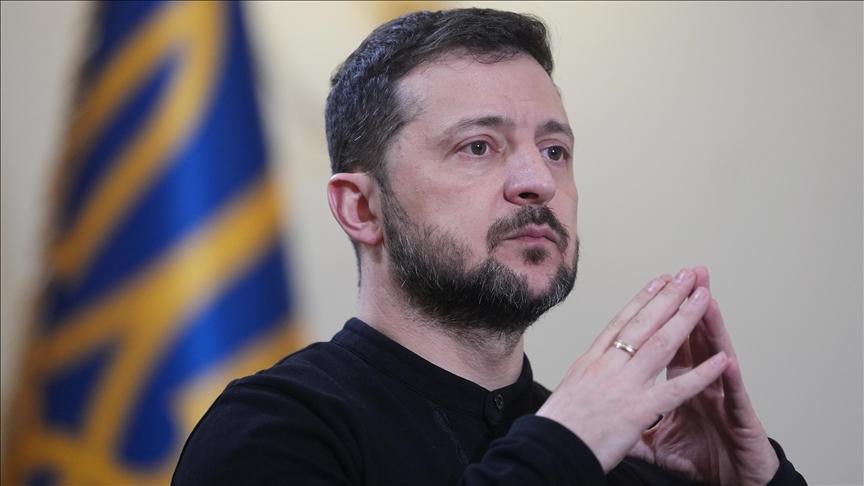Turkish group plays key Syria swap role
ISTANBUL - Hürriyet Daily News

Turkish relief group IHH’s Yıldırım (L) involved in a swap of over 2,000 prisoners held in Syrian jails in exchange for 48 Iranian pilgrims kidnapped by rebels.
A Turkish nongovernmental organization, the Humanitarian Relief Foundation (İHH), has played a key role in a massive prisoner exchange between Syrian rebels and the al-Assad regime, securing the released of 2,130 people in Syrian prisons in exchange for 48 Iranians being held hostage by militants.As a result of İHH’s months-long efforts, 2,130 prisoners, including 76 women and four Turkish citizens, who had been held since the unrest began in the country in March 2011, were freed yesterday.
An eight-person İHH committee, led by its head, Bülent Yıldırım, managed the process. Yıldırım said the release was being conducted at the Syrian Interior Ministry and that a senior Syrian general was in charge of the handover.
The prisoners were freed from several Syrian city jails including Damascus, Latakia, Homs, Idlib and Aleppo, Yıldırım told the Hürriyet Daily News yesterday in a phone interview during the exchange.
At the same time in Douma, a northern Syrian city controlled by rebels, 48 Iranians held hostage by Syrian rebels since August and threatened with execution were released.
Iran had insisted that the 48 Iranians were all pilgrims visiting a Shiite shrine in southeast Damascus, denying that any of them were on active duty in Syria.
Yıldırım said the swap was directed under mediation by Turkey, Qatar and Iran and that there were at least four Turkish citizens among the 2,130 people – whose number could increase.
However, Yıldırım said missing Jordanian-Palestinian journalist Bashar al-Kadumi was not among those released. “We have not been able to receive any clear information on the Palestinian journalist Bashar al-Kadumi yet. We are trying to determine the whereabouts of al-Kadumi,” Yıldırım said in reference to the reporter, who was captured by pro-government militias alongside Turkish journalist Cüneyt Ünal last year. Ünal was subsequently freed, but al-Kadumi remains missing.
The İHH’s press consultant, Serkan Nergis, said one of the captives was a sailor, Bayram Demir, that had been caught during a visit to Tartus port. The other two Turkish nationals’ names were not given but its known that they have been living in Syria while holding Turkish passports as well.
A Turkish woman identified only as Emel, who was said to be married to a Turkish man, was also among those released.
Yıldırım said the freed civilians were being given travel expenses to leave the cities they were being held captive in.
Turkish Prime Minister Recep Tayyip Erdoğan saluted İHH’s efforts, saying Turkey has been carrying out talks with Syrian opposition for innocent people’s release but that the Syrian regime’s reaction was unclear.
Erdoğan called on Syria “to free other innocent people” while speaking in Niger, his second stop on his Africa tour.
İHH’s “humanitarian diplomacy,” previously achieved the release of many Turkish nationals, including journalists Adem Özköse and Hamit Coşkun, who were held captive in Syria as well as 28 Iranian nationals and seven Syrians who were kept in prisons in 2012.
The İHH’s Mavi Marmara flotilla, which was trying to break the Israeli blockade to Gaza, was raided by Israeli soldiers and Israeli forces killed nine Turkish activists aboard the Mavi Marmara aid flotilla on May 31, 2010.
Turkey has repeatedly demanded Israel issue an apology and pay compensation for the deaths, but Israel blames Turkey and İHH for violating international law and its territorial sovereignty.
The İHH has been conducting wide-ranging aid activities inside Syria since the beginning of the clashes in the country. The organization was founded in 1995 after the wars in Bosnia and Chechnya.
















